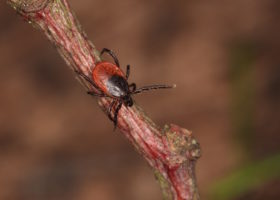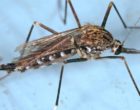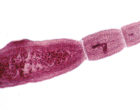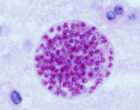Forecasting zoonotic disease risks in a changing climate
Modelling predicts how the ecological impacts of climate change are expected to drive changes in the endemic ranges of zoonotic vector-borne diseases… Read more »
Modelling predicts how the ecological impacts of climate change are expected to drive changes in the endemic ranges of zoonotic vector-borne diseases… Read more »

Vector-borne diseases (VBDs), caused by parasites, bacteria and viruses, constitute over 17% of all infectious diseases, and are responsible for more… Read more »

Krisztian Magori reviews the newest book by Dr. Peter Hotez titled "Preventing the Next Pandemic: Vaccine Diplomacy in a Time of… Read more »

Surveillance and monitoring of invasive species by public health agencies is often directed at international points of entry,… Read more »

Echinococcosis is an often fatal zoonotic disease caused by infection with the larval stage of tapeworms from the genus… Read more »

Toxoplasma gondii is an infamously widespread parasite prevalent across much of the world, with nearly one-third of humanity… Read more »

Evidence of shared immunodominance between Plasmodium falciparum and SARS-CoV-2 may explain low COVID-19 incidence in the… Read more »

Researchers from Benin and France uncovered a missing piece of the puzzle for human-cattle schistosome hybridization.

Over one-seventh of the world's population moved within the last year. Migration is only expected to increase in the coming years.… Read more »

For World NTD Day we highlight how research and technological development are cornerstones to the global effort to eliminate NTDs… Read more »